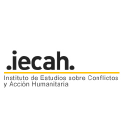WORKING WITH DG ECHO AS AN NGO PARTNER | FPA 2014 - 2020
PROPOSAL
ECHO asks for the date of the last needs assessment to ensure that it is up to date and that the partner has a proper understanding of the situation.
There isn't a defined time limit to carry out the needs assessment, as this depends on the operational context.
In those countries where the situation is quite stable, the needs assessment may be reliable for a longer time than in those countries where the situation may change rapidly. In the latter case, the needs assessment may need to be updated frequently in order to ensure a response to the current needs of the affected population.
This information is one of the elements that allow ECHO to assess the cost-efficiency and cost-effectiveness of the Action.
Disaggregated data on beneficiaries is essential for two reasons:
Firstly, it is needed for reporting purposes. Secondly, it has been introduced to help the partners deconstruct “the affected population” and better identify their specific needs, capacities and vulnerabilities, which is considered to be a precondition for providing assistance targeted to the specific needs of different groups.
However, where, at proposal stage, a detailed disaggregation of data is difficult to provide, the partner should provide at least an estimate. The partner will update this data during the following stages of the Action.
Partners are free to select the options which correspond best to the nature of their Action, provided that the same beneficiaries are not counted twice. Therefore they can choose either individuals only, organisations only or, if applicable, both options.
In particular, they can select “organisations” when they are not able to count individuals, for example in DIPECHO or Enhanced Response Capacity actions.
The term "organisation" does not necessarily refer to the existence of a legal entity, but it also includes the notion of community and structured group and is applicable also where the individuals are difficult to count.
If one of the two fields is not applicable to the partner’s Action, it should be filled with “0”.
Actions responding to Primary Emergency Decisions and to Emergency Decisions are always urgent and can never be extended.
For Actions under HIPs, the partner can choose to submit the simplified SF signalling that it intends to have an urgent action. However, it is for ECHO to agree on the qualification of "Urgent Action". In such a case, a specific provision must be included in article 6.3 of the SGA.
ECHO released a version of the Single Form Guidelines for the new modular single form. The Guidelines offer useful tips which are relevant to all types of Actions and Partners. Where the UN's Single Form is different, following the modular approach, clearly not all sections of the Guidelines will be relevant. The Single Form Guidelines may therefore be read by the UN in conjunction with further Q&As posted in this website.





